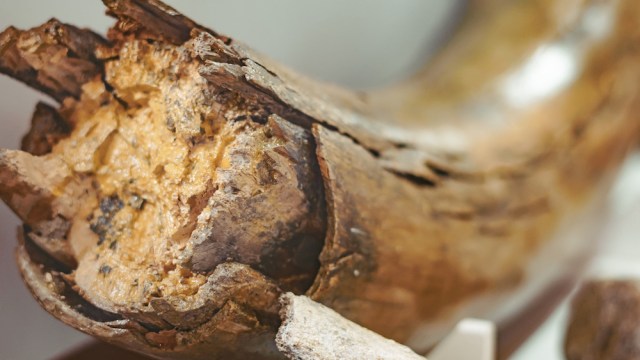What makes someone a hero, and when should we apply the term?

- Almost all societies have their heroes: folk legends who act as guides, role models, and exemplars we seek to emulate.
- Yet the term has changed greatly over the centuries. How we understand the idea today is drastically different to its original use.
- We often describe people, such as veterans or healthcare workers, as “heroes.” This raises interesting questions about the identities of these professions.
From a young child with a poster of their favorite sports star to an academic who obsessively reads their idol’s works, most of us have heroes. Heroism has fascinated humans for millennia. But for such a near-universal concept (most cultures have heroes), “heroism” is a difficult term to define. Here are a few ways in which heroism has evolved and been defined throughout human history.
Greatness
The Western foundations of heroism date back to Ancient Greece. There, a hero was anyone of great ability who did glorious things for the public good. However, heroism wasn’t a virtue because its award depended upon others’ judgments or the fortunes of life. Something like courage is a virtue, but while heroes must often be courageous, this alone is not enough. To become a hero was a social or public-facing achievement. The hero’s story must be told and disseminated across a society — a hero must also be a legend who does great and glorious things.
By the time of Homer’s Iliad and Odyssey, the hero had come to be almost exclusively associated with war. They were usually fighters, like Hector, Ajax, or Achilles, who were the greatest, fastest, strongest, and ablest of their people. But the wily intelligence of an Odysseus, manipulative and sly, could also be heroic, albeit still for the purposes of war.
The first big shift toward our modern understanding of heroism happened under Plato. For Plato, a hero was not limited to the battleground, but a philosopher or public servant (like his master Socrates) could be a hero if they had, what Aristotle called, a “greatness of soul.” They were still great in their field — a master above others — but this didn’t simply mean killing or defeating an enemy with a sword.
Sacrifice
Four thousand miles from Greece, in China, a subtly different idea of heroism emerged. Chinese culture and religion are much more steeped in a sense of collectivism, and in the philosophies of Confucianism, Daoism, and Buddhism, we see a concern for the greater good and for public safety. Confucianism, especially, places great emphasis on propriety, altruism, and respect for other members of a community. A Chinese hero like Monk Ji Gong, for instance, saved an entire wedding feast from a landslide by pretending to abduct the bride (for which he was chased after by the wedding guests).
Although it’s true that Chinese history gives great respect to martial success — for great generals and soldiers, for instance — folk-hero status was often reserved for those who were loyal to their country or people over their own life. Devotion and self-sacrifice were seen as the defining element of heroism.
And this view of heroism ended up forming the basis for the biggest religion the world has ever seen. In Ancient Greece and Rome, heroes were powerful and proud. But this changed with Christianity. A religion that’s entirely based around the execution of a poor carpenter’s son leaves little room for martial prowess and conquering glory. With the Christian thinkers of the late Roman Empire, the image of heroism was inverted: Sacrifice, humility, and compassion for one another were enough to make you a hero.
Everyone’s a hero
When we move into the Renaissance period, the hero shifts again to stand for someone who excels across many fields. A hero is a scholar, an athlete, a good citizen, and a noble person. This is why we have the term “Renaissance man,” meaning someone who’s as skilled at dueling and running as he is algebra and poetry. The old ties of heroism to “great deeds” were waning, yet some still saw the social function of the glorified hero. For the French thinker, Jean-Jacques Rousseau, heroes were exemplars to guide civic engagement — the kind of people we should want to emulate and for our children to aspire to. And for the Scottish philosopher, David Hume, a hero’s role is to paint our various national myths which make us all feel good about ourselves. A hero is someone who allows us to bathe in reflected glory.
Today, we call many people heroes. A lot of countries, not least the U.S., often refer to anyone who serves or served in the armed forces as heroes, and we talk of “fallen heroes” at times of remembrance. What’s more, during the pandemic, it was common to call healthcare and essential workers “heroes.” Indeed, the use of the term in this instance raises fascinating questions about the identity these professions.
First, do we expect our doctors and nurses to risk their own welfare for others by risking infection? If yes (as was once the case), then how far should they be called heroes if their work is not considered “beyond the call of duty”? Second, can anyone be called a hero if they do not sacrifice themselves? Does diligence, ability, and incredible hard work, alone, qualify you for hero status? And, finally, does overusing the term “hero” risk diluting it? After all, in the original Ancient Greek understanding, heroes were almost by definition a tiny, elite portion of society.
What is certain is that while the idea of heroism has massively changed over the years, it remains central to our collective discourse. Heroes matter to us. They guide us, inspire us, and help us. But, what does the term mean to you?
Jonny Thomson teaches philosophy in Oxford. He runs a popular Instagram account called Mini Philosophy (@philosophyminis). His first book is Mini Philosophy: A Small Book of Big Ideas.





